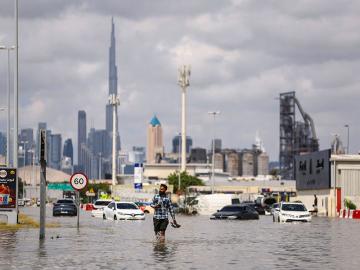
Mark Mobius: Debt Crisis Will Help Emerging Markets
Dr Mark Mobius, executive director, Templeton Emerging Markets Group, tells Pravin Palande & Shishir Prasad that he is optimistic about India and in many cases, a weak rupee may actually benefit some companies in the country
Dr. Mark Mobius
Profile: Executive director, Templeton Emerging Markets Group
Career high point: Consistently voted as one of the most influential investment managers in the world
Last vacation: Doesn’t take any
Known for: Travelling a lot; comic book based on his life
The idea of a single currency (euro) for differing political units seems to be in trouble. What does it mean for global currency markets?
The euro, which entered circulation in 2002, is now the second-largest reserve currency as well as the second-most traded currency in the world after the US dollar. However, dropping out of the euro zone was sometimes cited as an option for some European economies during the region’s recent sovereign debt crisis. Of course, there are challenges, such as member countries need to control government spending, but once these are sorted out, I believe the euro should be very successful and, in fact, it could possibly play a greater role in the global economy in 2020 than it does today. We are very positive on the euro, and think more countries should consider joining the EU.
How do you look at Europe in the coming year? Do you think countries like Greece will be allowed to move out of the euro? Will this not affect Germany and France? Will this problem have an everlasting effect on the world and especially on countries like India and China?
Some time ago, we had currency experts suggesting that countries like Latvia and Estonia should adopt the euro as they had sufficient currency reserves to do so. And on January 1, 2011, Estonia did indeed officially adopt the euro. I am very positive on the euro, and I think more countries should consider joining the EU. For those who recommend that Greece or some other country be thrown out of the euro, it is important to realise that it is not a choice any government or multinational body can make. The Greek people will decide what currency they want to use.
Recently, I was in Zimbabwe where they suffered from thousands of percent inflation and their local currency was devalued so greatly that to purchase a loaf of bread required billions of Zimbabwe dollars. Now they are using the US dollar. When I asked a Zimbabwe banker: "When did the government decide to abandon the local currency and adopt the US dollar?" He replied: "The government did not make the decision, the people make the decision." That is the case with the euro. It is doubtful that the Greeks or any other European country's people would want to abandon the euro to go back to their former currency.
Will the European sovereign debt crisis mean that global markets will look at sovereign indebtedness differently in the future? What does it mean for finance ministers of emerging economies? Will international investors prefer countries with moderate growth but low indebtedness in the future?
Greece, Spain, Portugal and Ireland continue to have problems managing their debt. While they obviously do not want to default, just by looking at the numbers, I think it may be quite difficult for them to avoid it. The question now is how they can continue to instill confidence back into the markets and how they might restructure their debt or raise more debt to repay the old debt. That said, I believe the governments in these countries continue to be very focussed on coming up with a constructive approach to restructuring their debt obligations, and in working with the European Union to try and avoid large scale problems.
The debt crisis in the US and Western Europe actually puts emerging markets in a very strong position because emerging markets’ debt to GDP ratios are much lower than developed countries, and their foreign reserves are greater than the developed countries
What is your view on India's policy to increase interest rates 13 times in 12 months to control inflation?
The RBI [Reserve Bank of India] had maintained an anti-inflationary stance given the inflationary situation in India. While the central bank has recently indicated a short-term pause, the medium term policy direction will depend on how various factors pan out — inflation, global liquidity/risk appetite, capital flow trends, fiscal deficit and global commodity prices.
Given that the trends in food inflation are being increasingly driven by structural factors, the government needs to address the bottlenecks for a longer term solution. Globally, many central banks have now started to focus on boosting liquidity and growth — in India, we expect short-term rates to fall faster than long-term rates (due to uncertainty about government borrowings).
Indian rupee is down by 13 percent over the last three months. How do you look at the prospects of the Indian rupee in the long run?
A weak rupee makes the government’s job of containing inflation significantly more difficult, but it also makes India more competitive in the global landscape and therefore we should not be too alarmed. Some companies will be negatively impacted while others, like exporters, would benefit from higher foreign earnings.
In general, the scenario for the rupee is very mixed in view of the fact that foreign reserves in India have been healthy, but the balance of payments continues to be negative as is the budget balance. The depreciation against the USD from about Rs. 40 to Rs. 50 has come despite decelerating money supply and high interest rates. In view of the above factors, the only way to stop the continuing weakening of the rupee would be for foreign investment flows to increase into the country.
The government and the RBI announced measures like enhancing FII [foreign institutional investors] investment limits in government and corporate bonds by $5 billion each, increasing deposit rates for Non-Resident Indians and easing overseas borrowing norms for local companies to encourage dollar flows in India. With regards to portfolio flows, general weakness in global equities and the fact that the Indian market is somewhat more expensive than other emerging markets, could inhibit large flows into the country.
We are not overly concerned about where the rupee is headed. If you look at our experience in the past, we have been able to generate good returns even in very high inflation environments. For example, back in the early 1990s, we were investing in Brazil and Argentina when the inflation rates there were over 2000 percent. We look at inflation through the eyes of the companies that we invest in, so we can pick companies in accordance with our inflation expectations and aim to profit from the prevailing conditions in the market place.
Generally, I'm optimistic about India and I don't think it is necessary to have a strong rupee to make India a great investment destination. In fact, in many cases, the weak rupee can be positive for some corporations in India.
As far as emerging markets (EM) are concerned, where will you be allocating capital? Where does India rank? Last year, it was South Korea on the top for most fund managers. How will the line up be for this year?
Currently, our largest global exposures are to China, Brazil, India, Thailand, Russia, Indonesia and Turkey. We continue to be bullish on emerging markets equities. Emerging market countries continue to grow three times faster than developed countries and that must be reflected in the earnings of emerging market companies and, of course, the prices of those companies. There, of course, will be leads and lags in the movement of markets, but it is clear that over the longer term, emerging markets will outperform developed countries. We invest on the basis of individual companies and not countries or sectors and therefore do not specifically avoid any region or country.
India’s economy is expected to continue to record sustained economic growth in the future. Over the long term, the growth rate of India should offer a good platform for Indian companies to deliver stellar results. India has one of the largest populations in the world and thus represents a huge consumer market. Moreover, with half of India’s people under the age of 25, India will continue to have both a strong labour force and large consumer base — important factors which should support the market’s recovery in the future. In addition to strengthening consumer spending, India benefits from the availability of skilled manpower and excellent managerial talent, which provides it with an edge in the service sectors. Infrastructure development is another area which could also contribute to the recovery of the economy.
The global purchase manager index (PMI) number is not encouraging. India's historical average is 56. But today it is 51 as manufacturing has slowed down. Will this number worry an international investor investing in India?
That decline is not significant when we consider that during the subprime crises it was considerably lower. Of course, if the index goes to 30 or below then we will need to be concerned.
The slowdown in India was expected, given the sharp monetary tightening done to tame inflation and the uncertainty over policy direction. Given that consumption is still steady, the government needs to create a conducive environment for manufacturing and private investments to grow. Although the PMI is relatively lower, given that it is over 50 still indicates an expansion and the latest HSBC PMI number showed an improvement to 52.3.
At this stage, we don’t foresee any issues for Indian companies in terms of their external exposure. If the rupee depreciation continues, some of these companies might see their earnings getting impacted due to increased provisions. Corporate India and the Indian economy have already exhibited their resilience during the 2008-09 crisis, when global conditions turned extremely negative.
Given the backdrop of global uncertainty and India’s funding linkages, volatility could persist. However, determined policy actions both in India and developed markets can act as a positive trigger in the coming year. Hopefully, the crisis in Europe gets resolved soon and policy makers in developed countries can refocus their energies on boosting slowing growth. Our discussions with long term global investors clearly points to their conviction that India will be a growth story in the foreseeable future and many will probably use the current correction to increase their exposure.
How are international fund managers looking at fixed income for the coming year? Is this asset class more attractive than equities?
There are signs of a concerted effort by leading central banks to boost global dollar liquidity and EM countries have started to cut rates. While commodity prices haven’t fallen substantially, the focus is clearly on boosting growth rather than tackling inflation (recent data pointed towards declining price pressures). The rise in global liquidity and falling interest rates will lead to investors looking for more rewarding investments. Thus, equities could benefit from greater inflows.
Is gold truly a hedge against inflation?
Yes, any of the precious metals have shown to be a long-term hedge against inflation. Of course, a better hedge against inflation is equities since not only do equity prices adjust to inflation, they also pay dividends which you do not get by holding precious metals.
Are there opportunities for Indian investors in global markets? What kind?
Yes, definitely. It is becoming more and more important for investors to diversify their investments outside their home country. We believe that emerging markets offer an attractive investment opportunity due to their strong economic growth, high foreign reserves and relatively low debt levels. Given the complexities of researching opportunities in various countries, investors are better off getting this exposure through established global managers with experience in international investing and with research and trading presence across the world.
(This story appears in the 20 January, 2012 issue of Forbes India. To visit our Archives, click here.)
-
 Luis De Agustin
Luis De AgustinDr. Mobius' view that the EU crisis will help emerging countries, is a view shared by David Ranson, head of research for Wainwright Economics. According to Dr. Ranson, current economic policy in the US and euro zone is scaring private capital away, and that€™s the main source of current poor performance. His diagnosis rests on two ubiquitous themes in classical economics: if private capital is not willing and able to invest in an economy, the economy cannot grow; and, that private capital shuns economies where the public sector is expanding or is intrusive and unpredictable. Wainwright clearly sees that the policies of the European leaders to put what they call a 'firewall'€ around their debt crisis are failing. However, the outlook for the world economy as a whole is not much affected by the continuing meltdown in the euro zone. That€™s because the US and the emerging world can recapture most of the capital that is flowing out of Europe. In the US, there are scattered signs of improvement that suggests this might already have started.
on Jan 14, 2012
















